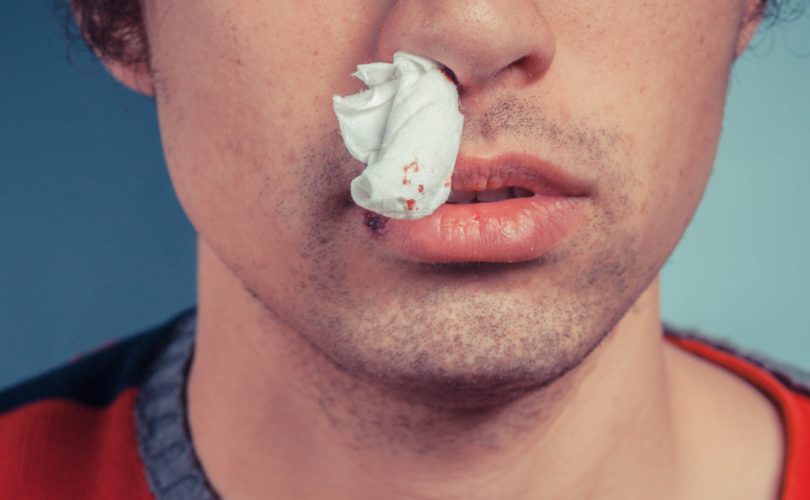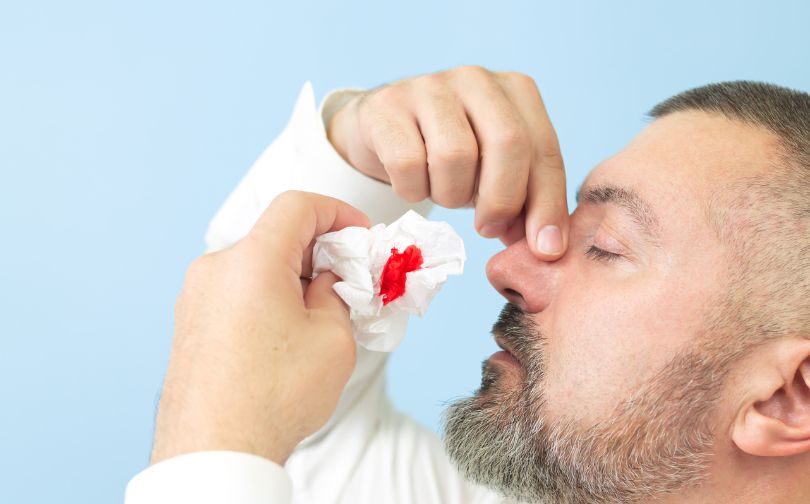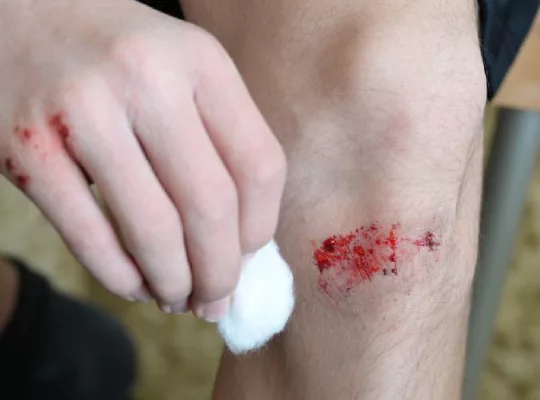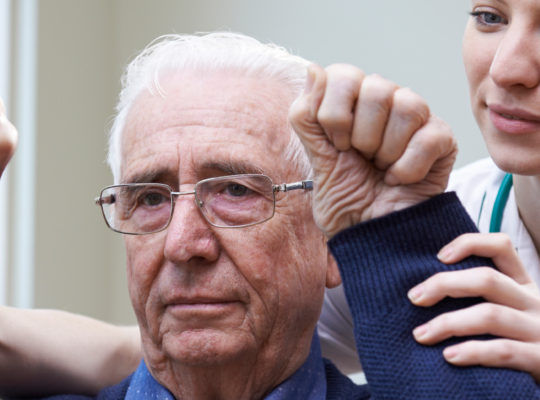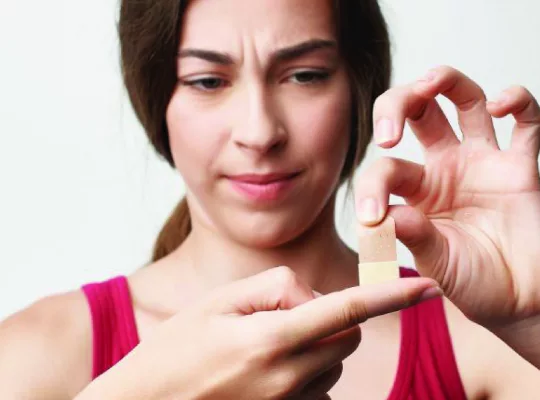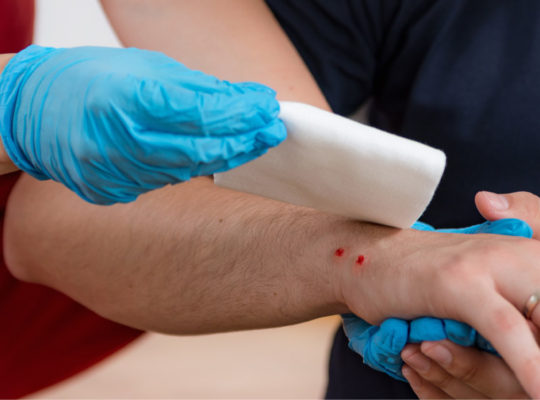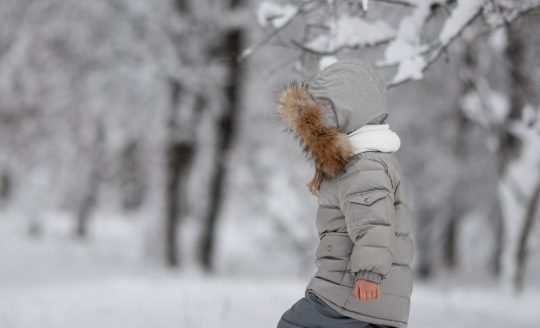Nosebleeds can happen at the most inconvenient times, leaving many people unsure of the best way to stop the bleeding. Whether it’s due to dry air, a minor injury, or even stress, nosebleeds can be alarming, especially if they last longer than expected. Many find themselves unprepared, reaching for tissues or tilting their head back, unsure if these actions are helping or making the situation worse.
Surprisingly, over 60% of people will experience a nosebleed at some point in their lives. Yet, few are confident about the right steps to take when it happens.
In this guide, we’ll address common mistakes and provide clear, practical advice on managing nosebleeds effectively. You’ll learn how to handle them safely, what triggers to avoid, and when to seek medical attention.
What Are the Symptoms of Nosebleed?
The primary symptom of a nosebleed is bleeding from one or both nostrils. Depending on the cause and type of nosebleed, additional symptoms may accompany the bleeding:
- Bright red blood: Blood may trickle or flow from one or both nostrils.
- Dizziness or lightheadedness: If the bleeding is heavy or prolonged, it can lead to feelings of faintness.
- Dryness or crusting in the nose: Common in cases where nosebleeds are recurrent or due to dry air or irritation.
- Frequent swallowing: If blood drips backward down the throat, you may have an urge to swallow more frequently.
- Tingling or itching: Sensations inside the nostril may occur if the lining is dry or irritated, which can lead to or indicate a nosebleed.
How to Stop Nosebleeds?
Nosebleeds are rarely dangerous but can be shocking and can ruin clothes and furniture. Thankfully, the steps to stop a nosebleed are very simple.
- Don’t tilt your head back or lie down, tilt it forward.
- Pinch your nostrils closed. Applying pressure slows the flow of blood which helps the blood clot faster. You can also use blood clotting spray for it. Breathe through your mouth and keep your nostrils closed for 10-15 minutes. If the bleeding doesn’t stop, lightly blow your nose and repeat once more.
- If your nosebleed continues after the second round of pinching, contact your doctor.
- Stay upright, relax, and keep your nose clear. Bending over, lifting something heavy, blowing your nose, or picking your nose can all cause the nosebleed to restart.
- For added protection you can use a cotton swab to apply a small amount of petroleum jelly to the inside of your nostril.
You can also use a nasal decongestant spray before the first round of pinching to help your nose. If your nosebleed doesn’t stop after the first 10-15 minutes, try using a cold pack or compress on the bridge of your nose while pinching.
What Causes Nosebleeds?
Nosebleeds are very easy to cause, the most common reasons are:
Picking your nose. The skin inside your nose is very thin and the fingernail can easily cut it.
Cold temperatures. Dry, cold air causes skin to dry out and crack. Keeping your nose moisturized with a humidifier, proper hydration, saline nasal sprays and moisturizers, or take steamy showers.
Medications. Blood thinning medications can cause the inside of your nose to dry out.
Injuries. Getting hit in the nose usually causes a nosebleed since the skin and vessels are so easy to break.
When to See a Doctor?
- When a nosebleed results from a fall or blow to the nose. It’s possible that your nose got broken or a large wound formed.
- You feel lightheaded.
- There is a lot of blood, or the blood is both flowing out of your nose and into your mouth.
- The nosebleed lasts more than 20-30 minutes.
- You’re on blood thinners.
- You get nosebleeds regularly.
These are all signs that there is serious damage to the nasal cavity and/or blood vessels, which may require cauterization or some other medical attention.
What Not to Do?
Don’t tilt your head back or lay down. This will cause the blood to flow into your mouth, which you can swallow or choke on it.
Don’t stuff a tissue, tampon, or gauze up your nose. This will end up irritating your nose more and can pull out the blood clots before they’re fully formed.
Don’t blow your nose, or at least not strongly. Being gentle or avoiding blowing your nose will let it heal and stop bleeding.
Don’t panic. An elevated heart rate will only cause your nose to bleed more.

Conclusion
Nosebleeds are common and can be startling, but they’re usually manageable with the right steps. Knowing what to do—like tilting your head forward, pinching your nostrils, and using nasal decongestants—can make a significant difference in stopping the bleeding quickly and safely.
Being aware of what triggers nosebleeds, from dry air to nose-picking, can help prevent them. Simple steps like using a humidifier, staying hydrated, and being mindful of nose-blowing can keep your nasal passages healthy.
However, if nosebleeds are frequent, long-lasting, or accompanied by symptoms like lightheadedness, it’s essential to seek medical attention. By following these guidelines, you can feel more confident in handling nosebleeds and knowing when it’s time to consult a doctor.
FAQs
How Can I Prevent Future Nosebleeds?
To prevent future nosebleeds, keep nasal passages moist using saline sprays or gels, especially in dry environments. Running a humidifier can also help. Avoid nose-picking, and blow your nose gently when necessary to prevent irritation and injury to nasal tissues.
Are There Different Types of Nosebleeds?
Yes, there are two main types of nosebleeds: anterior and posterior. Anterior nosebleeds are more common, originating from the front of the nose and manageable at home. Posterior nosebleeds, originating deeper in the nose, are less common but may require medical attention.
What Should I Do If My Child Frequently Gets Nosebleeds?
If your child frequently has nosebleeds, consult a healthcare provider to rule out any underlying conditions like infections or clotting issues. Trim their nails to prevent accidental injury from nose-picking, and discourage nose-picking to reduce the frequency of nosebleeds.

